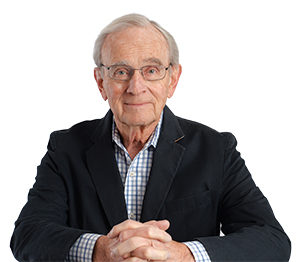 Thoughts On Being A Man
Thoughts On Being A Man
My brother-in-law in Mississippi, after reading about some of the harassment and abuse by men in powerful or influential positions, recalled an old Southern saying, “Men are just dogs.” A few weeks later there was a cartoon in The New Yorker showing two dogs. One was saying, “Dogs are just men.”
Thus has masculinity been thrust into the realm of public inquiry and discussion. What is it? What defines it? How do we know it when we see it? Who cares?
To answer these questions, I turned to the contemporary source of all knowledge: Google.
What I found—so often the case—were not definitions but descriptions. Not what does it mean to be a man but what does it look like? And to my eye, those descriptions were a collection of clichés: assertive, aggressive, handsome, muscular, driven, courageous and so on. And may I add sometimes brutal.
That makes me wonder how a male human can be described if he doesn’t possess those characteristics. In a recent TV drama, a young Marine’s buddy is killed; later, after the firefight, the young Marine is on the verge of tears and the main character commands him to “Man up, Marine!”
Man up? What the hell does that mean? (Notice I said, “What the hell?” Much more masculine than “What in the world?”) I presume that “man up” means if you cry you’re not a man and certainly not a Marine.
I just watched a TV documentary about Dr. Martin Luther King and the media. Some of the images were very disturbing, never before seen on TV. Most of these were shot in the South, my boyhood home. A lot of the images were of white men, their faces contorted with rage, shouting, beating and sometimes killing, with iron pipes and baseball bats, black people. They even taunted and threatened African-American schoolchildren. Need I say that the white men would have considered themselves real men and would not have considered the black people as even human?
I have nothing new to say about this debate except that it’s time we got past all this nonsensical classification of “masculine” based on utterly superficial descriptions of appearance and behavior. If those are the standards, what does that say also to male humans with various disabilities, both physical and intellectual? Am I to believe they can’t be considered real men?
Or what about male humans who prefer the symphony to a football game? Or those who design clothes instead of building decks; or who’d rather read poetry than murder mysteries; who prefer ballet to basketball; who’d rather express anger and frustration by saying something more like “Fie on thee, thou knave, thou blackheart, thou low uncharitable cur” rather than “F— you, a–hole!” Are those male humans not “masculine”?
(Well, that last one may be a little over the top, but then Shakespeare probably wouldn’t qualify as masculine these days.)
I flew an F-100 jet fighter in the Air Force for almost four years during the Cold War, including three years in France. By any measure, that means that my “masculine” credentials are intact, but you know what? I think I was more of a man when I took on the primary caretaker role for my son with autism while my wife was serving as lieutenant governor of Iowa. This meant household chores, marching band practice and field trips, as well as all that so-called feminine stuff like cooking, doing the laundry and so on.
Finally, consider this: Why don’t we just stop worrying about things like masculinity and femininity and focus instead on humanity?
Mississippi native James A. Autry (jamesaautry.com) of Des Moines is a well-known author, poet, musician and business consultant who has written 14 books on such topics as gratitude, servant leadership and his Southern boyhood. His newest book, “Everyday Virtues: Classic Tales to Read With Kids,” is co-authored with his son Rick Autry.







